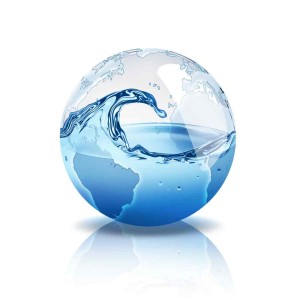Hard water and soft water are terms essentially describing the mineral content of water. Hard water
contains a range of dissolved minerals in fairly high quantity, while
soft water is treated to remove these minerals and only contains sodium ion.
When water falls as rain, it is already soft, but as it hits the ground
it picks up these dissolved minerals, turning it into hard water.
The Effects of Hard Water
The most pronounced effect of hard water can be seen in daily household
activities. Hard water tends to make chores such as washing dishes, clothes
and even hair difficult and frustrating. Clothes may look dingy no matter
what type of detergent is used, while dishes may come out with spots and
a filmy residue.
Hair washed in hard water may be dull and feel tacky or dry. Hard water
also leaves residue and scum on bathtubs and sinks, which builds up much
faster than soft water.
Soap and detergents are rendered less effective because of the magnesium
and calcium in the hard water. This causes a reaction that makes soapy
lather less bubbly.
Is Hard Water Bad?
Hard water is not inherently bad for health, in fact, the dissolved minerals
make the water taste better and may actually yield health benefits. On
the other hand, soft water may taste salty and unpleasant to drink. Hard
water can also help reduce the solubility of certain toxic ions such as
copper and lead. However, hard water can also cause damage to pipes or
render them less efficient.
This is the point when people usually choose to soften their water. The
minerals in the hard water can leave scaling and buildup in pipes, just
as it does for sinks and bathtubs. Softening water also helps to conserve
resources and prolong the life of appliances. Dishwashers and washing
machines do not have to work as hard and water heaters may last longer.
Softening Water
In order to gain soft water all throughout the house, a water softening
device must be installed. These are essentially whole house water filters
and remove the minerals that cause scaling and buildup.
These work by using resins that exchange ions for sodium. When the minerals
in the hard water come in contact with the beads, they are removed and
exchanged for sodium ions. It is also possible to get water softeners
that do not use sodium as a replacement.
Knowing about the water in your Ruston, LA home is important. Call Mark Johnson Plumbing at (318) 255-1332 to learn more about treatment options!


